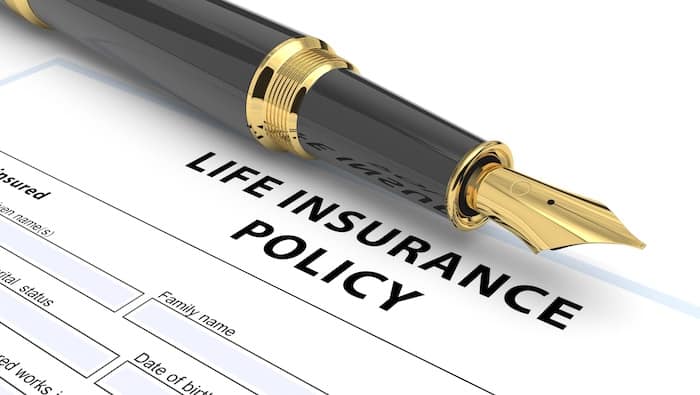Getting life insurance is a great way to ensure that your loved ones or beneficiaries will receive a decent amount of money once you die. But for this to be effective, you—as the policyholder—will be required to pay premiums to the insurance company.
The amount of premiums that a policyholder must pay is determined by several factors. This includes the amount of insurance coverage, age, gender, medical history, and lifestyle (like smoking and drinking). A person’s Body Mass Index (BMI) also plays a role.
BMI is a tool used to determine a person’s body fat by calculating weight divided by height. Depending on the result, a person is categorized as either underweight, normal, overweight, or obese. A person’s BMI usually determines his or her health risks.
Since insurance providers mainly cover risk and overweight people are considered high-risk due to possible health complications, the impact of BMI on life insurance is that it generally results in higher premiums for the policyholder.
Health Classifications
Apart from BMI calculation, insurance companies also consider your health condition and your family’s medical history to determine your rating. Premiums increase with each rating.
- Preferred Plus
Also called Super Preferred, Preferred Elite, or Preferred Select, this rating is usually given to people who are relatively young and are in excellent health with no history of medical issues. If you fall into this category, you’ll be granted the lowest premiums.
- Preferred
If you’re in good health but have minor medical issues and family history with notable health conditions, you’ll qualify for this rating. You’ll still get competitive premiums, but not as low as those who are granted with the Preferred Plus rating.
- Standard Plus
This rating applies to people in relatively good health but with manageable medical conditions like blood pressure or high cholesterol. If your BMI falls outside the preferred range of the insurance provider, you will be given this rating—even if you have a relatively good family medical history.
- Standard
If your BMI is not ideal and you have pre-existing health issues, you’ll likely get this rating. Under this rating, you can expect to have relatively higher premiums. Smokers and overweight people usually fall into this category.
- Table Rating
Table rating is assigned to applicants who are classified as high risk. People with complicated medical histories and may have suffered health conditions like heart disease, cancer, diabetes, osteoarthritis, and mental issues would usually fall under this one. A good number of these people come from the elderly population. People with criminal records are also considered high risk.
A table containing risk factors is used to determine payable rates in this category. This rating has the highest insurance premium amounts. Life insurance basically assesses the odds of a person dying and offers coverage based on the risks involved. The cover that an insurer offers you, is translated as the bet they place on you to live beyond the term period of the policy.
Health risks associated with obesity are high, and so is the cover. Overweight people are not typically denied life insurance. This only happens if the risk to their health is significant enough to impact the cover.

Life Insurance: Options For Overweight People
If you are obese or overweight and you’re planning to get life insurance, there are a few things you may want to take into consideration:
- Opt For A No Medical Exam Life Insurance
Getting a medical exam is usually part of the process to get life insurance. But if you’re the kind of person who finds medical examinations tedious and difficult due to complicated health issues or otherwise, you may want to explore the option of ‘No Medical Exam Life Insurance.’
Just as its name suggests, one does not require to undergo a medical examination to be covered. People who had their insurance applications rejected due to their weight can opt for this type of insurance.
Pros
- The application is very convenient as you only have to fill a questionnaire which can be done through your phone or computer online.
- It’s appealing to those who fear things that are associated with hospitals like needles and blood.
- Approval is faster because you don’t have to wait for the results of a medical exam.
Cons
- The insurance premiums are high because the insurer is taking a high level of risk.
- The cover provided is limited compared to what a traditional policy offers.
- Lose Weight
Insurance companies highly consider applicants who lose weight intentionally without using surgical methods. You may receive half credit for weight loss in the past 12 months. But if you continually lose more weight and achieve an ideal or almost ideal BMI, you may qualify for better insurance rates.
Premiums for existing life insurance for overweight people can also be revised downwards if they lose weight. The insurer will however be monitoring your weight, so maintaining the weight loss will work to your benefit.
- Reduce Coverage
You may have shopped around and found that life insurance for overweight people is out of your reach. But instead of opting out completely, you can explore the possibility of reducing the extent of your coverage. You can also try removing certain add-ons and riders to your insurance to further reduce your premiums.
- Stop Smoking
Smoking has an impact on life insurance. A person who does not smoke will get cheaper rates than a smoker because smoking adds numerous health risks regardless of weight, age, or health status. If you are overweight and a regular smoker at that, life insurance can be very costly. If you stop smoking, your status will change to non-smoker after 12 months and your premiums will be revised downwards.
Conclusion
It would be easy to give false information regarding your health and weight especially if you are applying for ‘No Medical Exam Life Insurance.’ But it is better to do the right thing and be truthful about your health and medical history with your insurer because the consequences can be dire. If you give false information and your insurer finds out, your life insurance may be revoked—leaving you, your family, or beneficiaries without coverage.
Getting life insurance is important because no one knows when misfortune will strike. Taking that step will give you peace of mind, knowing that your loved ones will be taken cared of financially in your absence. But before committing to an insurance provider, take time to shop around. This helps you analyze which provider gives better rates and coverage. For instance, one company may give you a standard rating while another may give you a standard plus. Each insurance company has products packaged uniquely, and their qualifications for each rating may vary.
Throughout the year, our writers feature fresh, in-depth, and relevant information for our audience of 40,000+ healthcare leaders and professionals. As a healthcare business publication, we cover and cherish our relationship with the entire health care industry including administrators, nurses, physicians, physical therapists, pharmacists, and more. We cover a broad spectrum from hospitals to medical offices to outpatient services to eye surgery centers to university settings. We focus on rehabilitation, nursing homes, home care, hospice as well as men’s health, women’s heath, and pediatrics.








